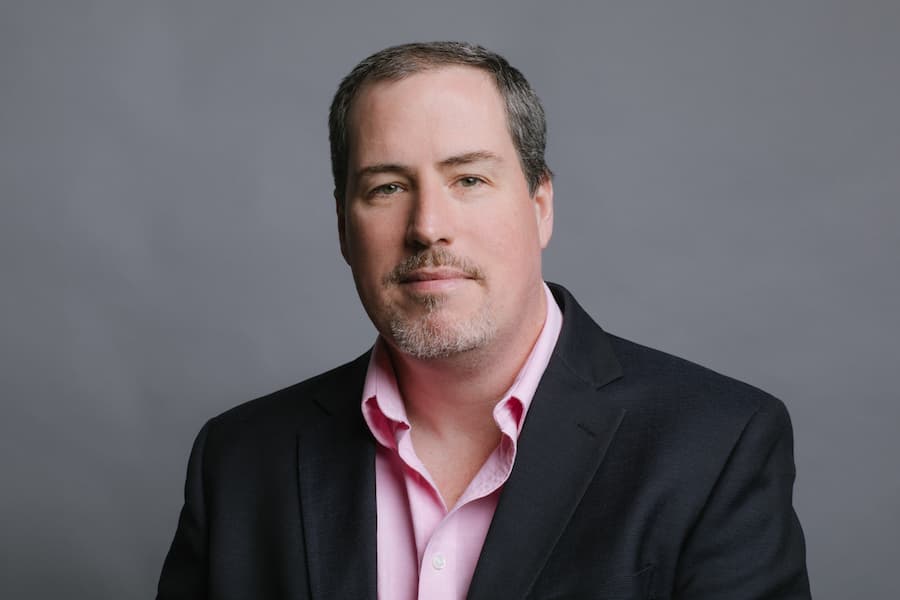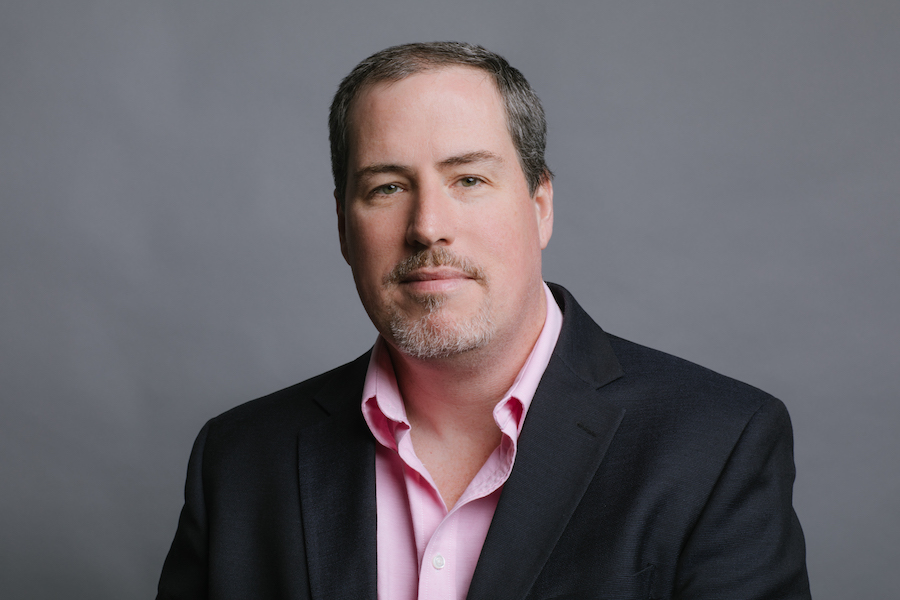Interview with Brent Baisley, VP of Engineering at Ticket Evolution
Published on Jan 24, 2018
8 min read


Current role: VP of Engineering at Ticket Evolution
Location: Greater New York City Area
What’s your background and how did you get into management?
I’ve been in tech for about 30 years now. I’ve been a Programmer (front and back), Sysadmin, Network Admin, DBA, Technician, and worked the Help Desk. I’ve always loved connecting the dots and understanding how things work end to end.
I slipped into the role of Tech Lead on a number of jobs, partly because of my diverse experience. Becoming a leader was never part of my plan. I always wanted to be an Architect. Building the systems I architected required teamwork. I seemed to have a knack for getting people motivated and passionate about what we were building.
About 5 years ago I suddenly realized I hadn’t written a single line of code in a few months. I was at a startup that was growing fast. Somehow I had 23 direct reports spread across 6 teams. It was time to choose my path, manager or architect.
I truly loved being an architect, but I was also being very effective as a manager. More so than I would be as an architect. I could teach architecture better than I could teach leadership. I could train someone else to fill in the architect role. I chose to take the leadership path. I was lucky enough to get a professional leadership coach who taught what leadership is (it’s art, not science) and how little I actually knew. I realized I was a good leader mainly through luck. My leadership coach really just set me on the right trajectory. He taught me how to learn how to become a good leader. He taught me how to fish so to speak.
Now I architect teams and connect the dots between people instead of systems. My motivation for what I do hasn’t really changed in 30 years.
What are the biggest challenges you face?
Strategic thinking over tactical thinking is probably one of the biggest. I’ve seen this across multiple companies. When there is pressure to get things done and so many things to do, we focus on getting things done. We feel productive because of our output. In reality, we’re being tactical and not very effective. Every battle is being won but the war is being lost.
Teaching people to think more strategically, to optimize for what we don’t do is a big challenge. Telling people to stop focusing on being productive and focus on being effective is a very different perspective. It takes a bit to sink in. At startups with limited resources, it’s being effective that matters most.
This way of thinking needs to be applied at all levels, not just individuals. It should be applied at the team level through collaboration and the teams of teams level through coordination. Aligning that many people is a big challenge.
Another challenge is teaching people how to become agile, not just doing Agile. Agile isn’t a process its a behavior, a dynamic way of thinking and acting. Processes are a way to form good habits. Once good habits are formed the processes should be removed. The industry has made Agile a process and most companies and teams are stuck midway through the journey to becoming agile. Getting them unstuck is a challenge.
There is always push back when I advocate for switching from Scrum to Kanban towards the end of a project. That’s when the work is mostly tweaks and bug fixes. The focus should be on execution, not planning during this cycle of a project. It’s the time to be agile. Saying we are going to change the way we work when a project is almost finished is a challenging pitch.
What is your approach to hiring?
I think hiring is about 3 things: potential, trajectory, and performance. Specifically in that order. Performance is largely a side effect of potential and trajectory. Sort of like luck is a combination of skill and opportunity. Technology changes so fast, much of our knowledge and skills will be obsolete in 5 years. I’d rather have someone with high potential and on a solid trajectory than a great performer whose trajectory has flatlined. The great performer will be obsolete in 5 years.
Someone could be a great performer because of their environment. For a while, GE was known for creating great leaders who struggled to perform at other companies. GE had the infrastructure and environment to help them perform and succeed. It’s also possible that someone isn’t a great current performer because of their environment. They could have great potential but are in a bad trajectory because of their environment.
The traits and behaviors I look for in candidates are courage, initiative, curiosity, wisdom and the ability to say “I don’t know”. If they can’t say “I don’t know” they won’t ask for help. They have limited potential. My “ringer” question is asking them how are they going to be better at what they do 6 months from now. Most are stumped by it. The courageous, curious and high potential candidates realize that their trajectory may be off. They are bothered by this and want to figure it out.
I can teach people how to program and architect. Courage, curiosity, and initiative are far harder to teach, if not impossible. Wisdom can’t be taught, it’s a result of what you’ve learned from your experiences.
At the end of every interview, I review with the candidate what I think their strengths and weaknesses are. If they are not a fit, I stress they are not a fit at this time. Their skills will be very different a year or two from now and I encourage them to connect and keep in touch. About a third of them connect with me on LinkedIn. I keep in touch with quite a few candidates I’ve passed on. Some have even referred people to me.
What’s your advice for managers who are just starting out?
Leadership has been studied and analyzed for decades. Approach it the same way you would a new skill, technology, or programming language. Read up on the theories, philosophies, and studies from Tuckman, Hersey-Blanchard, Maslow, Herzberg, Brandon Hall, Sinek, Dweck, Covey, Chamine. Read Google’s Project Aristotle and Project Oxygen. Google’s conclusions were largely theorized by all the others before them, they just backed it up with real data. This will increase your leadership potential and put you on the right trajectory. Be aware that this only gives you the knowledge on how to be a great leader. Actually being able to perform as a leader takes practice.
You have to get people to trust and believe in you because you give them hope no matter how difficult things get. Trust is a bucket you fill up one drop at a time (Stephen R. Covey). Make sure you have a full bucket for when you need to make a withdrawal.
Practice on yourself. Start with Emotional Intelligence (i.e. the 2.0 book). You won’t be able to effectively lead others if you can’t lead yourself. Leadership has a lot to do with emotion. Passion is an especially powerful emotion in almost everyone. Impose your passion on others and you’ll likely fail. Leverage your passion and teach people how to leverage theirs and they will follow you.
Figure out what your natural leadership style is. Mine is Situational Leadership though I’m striving towards Functional Leadership. This will allow you to plot your trajectory to becoming a great leader.
Whats your work day like and how do you manage your time, emails, etc.?
I’m a fan of the Brendon Burchard daily planner. At the beginning of each day, I write down what I need to accomplish that day. Those are my priorities, my focus. I put each one on a post-it and place them at the bottom of my monitor. Every time I come back to my desk I see those reminders. It’s a constant, subtle nagging. It also helps that other people also see what I’m trying to get done and don’t bother me. Or better yet, offer to help.
Emails are somebody else’s To Do list for you. I try to be strategic in when I look at and process them. As a manager, many To Do items do come from email, but it can also be a time suck. Throughout the day I’ll quickly scan the emails and see if there is anything urgent or important (Eisenhower Matrix). Urgent ones I’ll respond to, important ones I make a To Do item for in Gmail Tasks (quick and easy). That keeps my unread emails number a useful metric to look at.
I’m a believer in the Maker’s/Manager’s Schedule concept from Paul Graham. As a manager, I work in half-hour increments. Makers work in 4 hour increments (before/after lunch). A Maker can schedule a meeting with me in any open slot that works for them. This means I do a lot of context switching during the day (tactical). I take notes for almost every meeting in Evernote. I can then review notes from the day on my commute and/or at the end of the week (strategic). My oldest note is from over 8 years ago.
What’s a personal habit that contributes to your success?
I make sure to always look 1 year out. What should our systems look like in 1 year? Who am I 1 year from now? It’s not about setting goals it’s about envisioning a future state and then creating a roadmap on how to get there. It’s different than goals. Goals may be strategic, but the act of achieving them is largely tactical. I try to always make sure I’m thinking strategically. It’s way too easy to slip into tactical execution, which seems productive but isn’t necessarily effective.
I try to always be aware of when to be a leader and when to be a manager. Leaders articulate a vision, managers set goals to achieve that vision. A leader focuses on building the right thing, a manager on building things right. Leaders motivate and inspire, managers plan and execute. In the end, people report to managers and choose to follow leaders.
I strive to work just outside my comfort zone. If there are no volunteers for a task or project, I’ll give it a shot. I find I learn a lot more in a shorter time frame than any other way.
Share an internet resource or tool that you can’t live without.
Medium.com as an internet resource. Evernote as tool to keep track of information. Slack as a communication tool. Grafana for tracking the health and trajectory of the systems I manage.
If you could recommend one book to managers, what would it be and why?
Positive Intelligence by Shirzad Chamine. It helped me discover what my professional personality was so I could come up with a strategy to become better. It also helped me in “classifying” the personalities of those I managed so that I can help them come up with a strategy to reach their full potential. Sometimes it’s our environment holding us back, many times it’s ourselves that is holding us back.
Where can we go to learn more about you? (LinkedIn, Twitter, Github, etc.)
I’ve written a few articles on Medium.com and have a few more articles in the works. https://medium.com/@Bar_Code/latest
My LinkedIn is usually up to date since that is how I market myself to candidates. https://www.linkedin.com/in/brentbaisley/
Twitter: https://twitter.com/Bar_Code
I also try to attend CTO School meetups in NYC. https://www.meetup.com/ctoschool/
This series asks engineering managers to share their experiences with the intent of helping other engineering managers learn and improve. Have someone you want to see featured or questions you think we should ask? Contact me.





